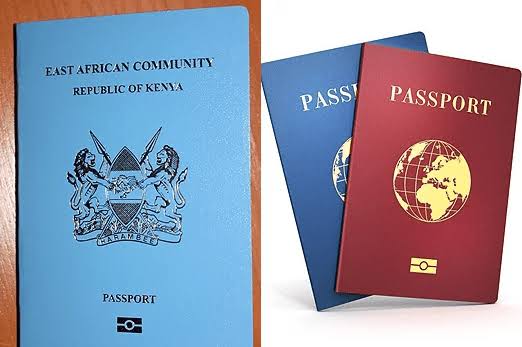Facebook Twitter (X) Instagram Somali Magazine - People's Magazine
In a landmark move aimed at fostering regional integration and boosting tourism, the Kenya has announced the removal of electronic Travel Authorization (eTA) and visa requirements for all African nationals, with the exception of those from Somalia and Libya. The decision, which took effect on January 22, 2025, is part of Kenya’s broader strategy to enhance intra-African travel and strengthen economic ties across the continent. However, the exclusion of Somalia and Libya has been attributed to ongoing security concerns.
Under the new policy, African visitors will be permitted to stay in Kenya for up to two months without requiring a visa. Nationals from East African Community (EAC) member states will continue to enjoy the existing privilege of a six-month stay, in line with the region’s free movement protocols. This initiative is expected to significantly ease travel restrictions, making Kenya a more accessible destination for African tourists and business travelers alike.

To further streamline the entry process, Kenya will introduce expedited eTA processing for eligible travelers, ensuring instant approvals with a maximum turnaround time of 72 hours. Additionally, the government plans to implement an Advanced Passenger Information/Passenger Name Record (API/PNR) system at its airports. This system is designed to enhance security measures while expediting passenger clearance, ensuring a seamless travel experience for visitors.
The Kenyan Cabinet has directed the Ministries of National Treasury, Transport, Interior, and Tourism to develop comprehensive guidelines aimed at improving traveler experiences at the country’s airports. These guidelines are expected to be finalized within a week, with a focus on enhancing efficiency, security, and hospitality services.
The decision to waive visa requirements for most African nationals has been widely praised as a progressive step toward achieving the African Union’s vision of a borderless continent. By removing barriers to travel, Kenya is positioning itself as a leader in promoting regional integration and economic collaboration. The move is also expected to boost the country’s tourism sector, which has been recovering from the impacts of the COVID-19 pandemic and other global challenges.
However, the exclusion of Somalia and Libya has sparked mixed reactions. While some have expressed understanding of the security concerns cited by the Kenyan government, others have called for a more inclusive approach that addresses these concerns without outright exclusion. Somalia, in particular, has long been a focal point of regional security discussions due to ongoing instability, while Libya continues to grapple with political and security challenges.
Kenya’s decision comes at a time when several African nations are exploring ways to facilitate easier movement of people and goods across borders. The African Continental Free Trade Area (AfCFTA), which aims to create a single market for goods and services, has already laid the groundwork for increased economic cooperation. By easing travel restrictions, Kenya is aligning itself with these continental efforts, paving the way for greater cultural exchange, trade, and investment.
As the new policy takes effect, stakeholders in the tourism and hospitality industries are optimistic about its potential to attract more visitors to Kenya’s world-renowned attractions, such as the Maasai Mara, Mount Kenya, and the coastal beaches of Mombasa. The government’s commitment to improving airport infrastructure and traveler experiences is also expected to enhance Kenya’s reputation as a top destination for both leisure and business travelers.
In conclusion, Kenya’s decision to waive visa requirements for African nationals marks a significant milestone in the country’s efforts to promote regional integration and economic growth. While the exclusion of Somalia and Libya highlights the complexities of balancing security with openness, the move underscores Kenya’s commitment to fostering a more connected and prosperous Africa.

